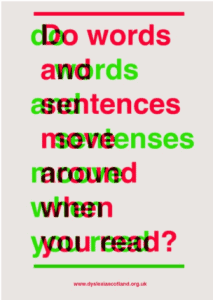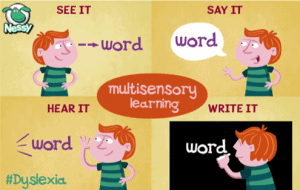Does your child have (or do you suspect they have) a learning difficulty?
If so, we can support your child with the additional help they will sometimes need. In our many years of teaching experience we have developed strong approaches and strategies to help children with additional needs to improve their confidence, self-esteem and grades. If any of the issues in the following list sounds familiar to you then we may be able to support your child:
- Difficulty with reading?
- Develops headaches when reading?
- Avoiding tasks involving reading or writing?
- Low confidence and self-esteem?
- Spelling problems?
- Handwriting difficulties?
- Problems dealing with numbers?
- Problems with memory and organisational abilities?
- Auditory processing issues?
- Difficulty with comprehension and understanding?
- Hearing problems in noisy environments?
Dyslexia
Defining Dyslexia

In 2009 Sir Jim Rose’s Report on ‘Identifying and Teaching Children and Young People with Dyslexia and Literacy Difficulties’ included the following major points in his description of dyslexia:
- ‘Dyslexia is a learning difficulty that primarily affects the skills involved in accurate and fluent word reading and spelling.
- Characteristic features of dyslexia are difficulties in phonological awareness, verbal memory and verbal processing speed.
- Dyslexia occurs across the range of ALL intellectual abilities.
- A good indication of the severity and persistence of dyslexic difficulties can be gained by examining how the individual responds or has responded to well-founded intervention.’
- Some also have strengths in other areas, such as design, problem solving, creative skills, interactive skills and oral skills.
Adapted from the www.bdadyslexia.org.uk website.
Dyslexia Screening and Personalised Learning Support Plans

It is possible to improve literacy skills by using structured, multi-sensory interventions; however, research shows that early intervention is more effective. Alicia has trained with the British Dyslexia Association (BDA) and is able to offer both dyslexic screening and personalised support to children with suspected dyslexia. We can then also offer advice in the next steps you need to take with seeking a diagnosis and support at your child’s school.
Our personalised programmes of support are tailored to a child’s individual profile of strengths and weaknesses, taking into account their specific needs and priorities as identified through the screening process.
We are also experienced in teaching children with ADHD, ADD, ASD, dyscalculia, dysgraphia, dyspraxia and working memory problems. We stock a full range of coloured overlays and rulers, along with specialist writing equipment.
Multisensory Learning
We at Clear Steps Plus Education believe in fully utilising multi-sensory learning and teaching in order to achieve the maximum improvement in confidence and academia.
Multisensory learning provides more ways for understanding new information, more ways to remember it and more ways to recall it later. This type of learning is useful to all children; however, it is particularly useful to Dyslexic children, who typically have difficulty absorbing new information, especially if it is abstract or involves memorising sequences or steps. Multisensory teaching techniques help break down these barriers to learning by making the abstract more concrete, turning lists or sequences into movements, sights and sounds.
The best part of all is the multisensory learning is more fun and works well for every learner, but is particularly useful for children with a learning difficulty.
Facts about Multisensory Learning
|
Useful Links
https://www.dyslexia-reading-well.com/multisensory-learning.html
https://www.bdadyslexia.org.uk/ British Dyslexia Association
www.addiss.co.uk Attention Deficit Disorder Information Services
www.adders.org ADD/ADHD Online Support Group
www.dyspraxiafoundation.org.uk The Dyspraxia Foundation
https://www.bdadyslexia.org.uk/parent/getting-help-for-your-child
